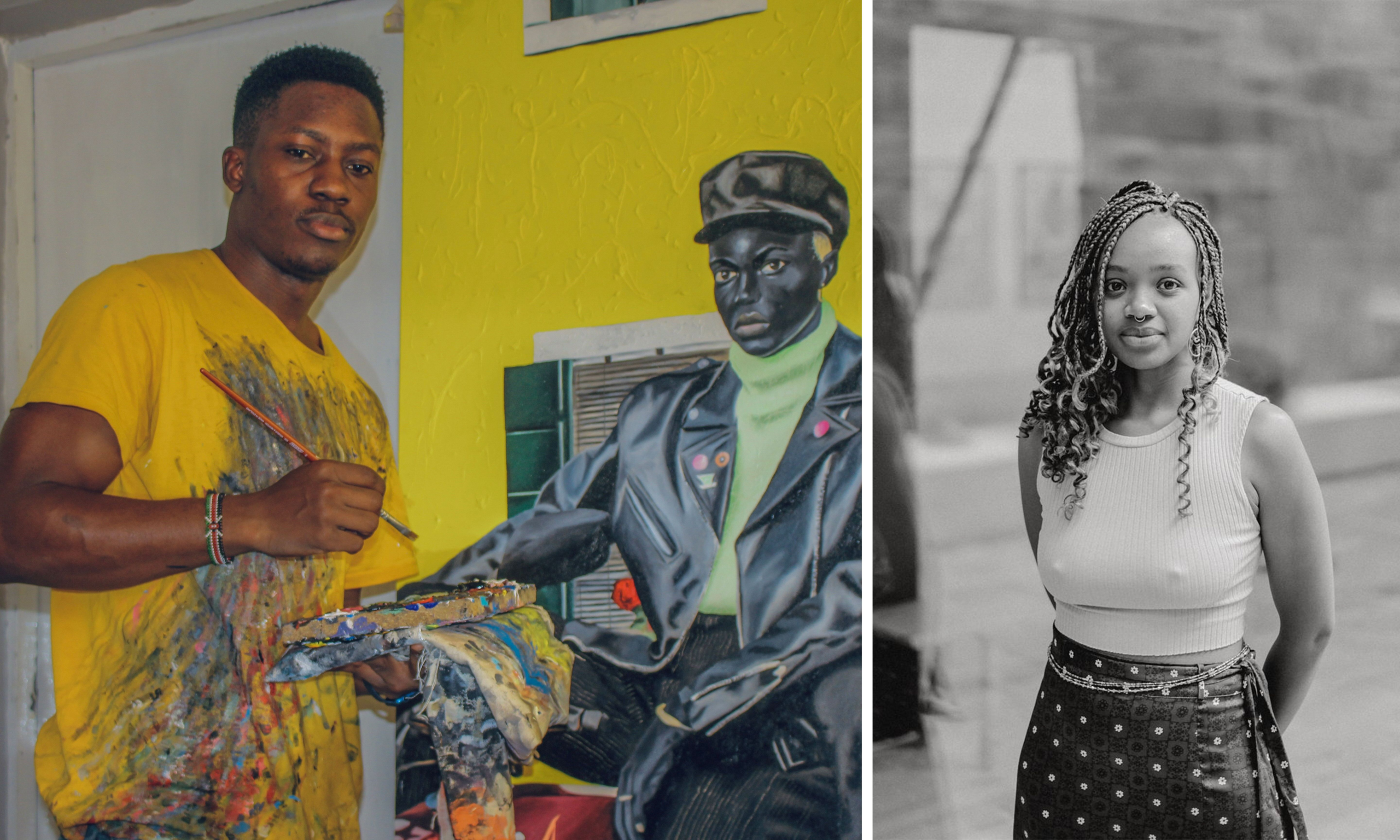Artists Ian Banja (left) and Agnes Waruguru Ian Banja: Courtesy of Ian Banja; Agnes Waruguru: Photo: Lais Pereira
Widespread protests in Kenya over controversial tax hike proposals have escalated over the past few months and put the country’s artists in jeopardy. Demonstrations over the tax bill began in June as a youth-led movement and have since grown into larger civil unrest.
Kenyan president William Ruto last month withdrew the bill, which would have raised taxes on goods like bread, sugar, vegetable oil and money transfers made on mobile phones. Still, protests continue, and in the capital of Nairobi many shops and businesses have closed as a result of the chaos and police have used tear gas to disperse protesters. Over the past few weeks, demonstrations have grown increasingly violent, and police said on Tuesday, 23 July that at least 50 people have been killed in clashes between protestors and security forces, according to Reuters.
The Art Newspaper spoke with Agnes Waruguru, a multidisciplinary artist based in Kenya who is part of this year's Venice Biennale. Waruguru attended the first protest in Nairobi last month.
Demonstrators at the protest Agnes Waruguru attended in Nairobi in June
Courtesy of Agnes Waruguru
“When we first arrived at the Central Business District we could smell and feel the tear gas in the air, just a few minutes after the peaceful protests had started. This confused me a lot because we had permits to protest—one would think this meant we had a legal right to be there and gather,” Waruguru said.
During the protest, Waruguru said she and her companions found themselves in a narrow street when the police threw teargas into the crowd, leading to a stampede. The group escaped to a nearby mosque, where doctors were volunteering to help anyone who may have been hurt.
“At this point my heart grew heavy and I started to understand that the police and government aimed to get us to stop by any means necessary,” Waruguru said. “We learned that later that day people lost their lives. This is a gathering that the government issued permits for, leading us to believe we would be safe and we could gather.”
Protests since the quashing of the bill have zoned in on what Kenyans are calling a corrupt government and other serious charges. Ruto last week fired almost all of his cabinet following what he described as “reflection, listening to Kenyans, and after holistic appraisal of my cabinet”. Protests have also made their way into other parts of the country including Mombasa, Kisumu, Nakuru and Nyeri.
“The political situation and recent protests have impacted many artists in Kenya over the years, as a lot of them try to use their creativity to raise awareness of the current happenings within the country,” Ian Banja, a painter based in Kenya, told The Art Newspaper. “Many artists try to express their disagreements and advocate for change through their artistic works… Kenyans are still using art as a powerful tool to comment on this larger social movement and beyond.”
Nairobi-based sculptor Cyrus Kabiru noted that many artists in Kenya struggle to make a living, finding it even more difficult now than compared to the height of the Covid-19 pandemic.
Now, the demonstrations and resulting crackdown have added to the strain. “It’s affecting artists because we’re not [holding] any sales and all art activities are dormant,” Kabiru said.
Creatives have also come under suspicion by the government, who believe they may know something about the demonstrations or even be involved in leading or organising them, Kabiru adds.
“Every day I feel like there’s someone following me, and a lot of the artists are worried about the situation,” Kabiru said. “Yesterday I met an artist who ran away from his house and studio [and who is] looking for help as he can’t get back to his place for now.”
Kenya over the past few years has ramped up the censorship of artists and musicians. Influencers and artists have recently ended partnerships with Safaricom, the country’s biggest telecom company, claiming it had shut down internet access during the tax protests as a means of stifling the spread of information. (Safaricom denies the allegations. The Kenyan government has a 35% stake in the company.)
“In this time, I have been reflecting on how my practice has been related to grief and creating spaces for slowness, quietness and waiting. [Since the protests] I have not been in a space of quiet, but more of action,” Waruguru said. “I would say I am still processing everything that is going on since we are just in the beginning of a revolution.”

